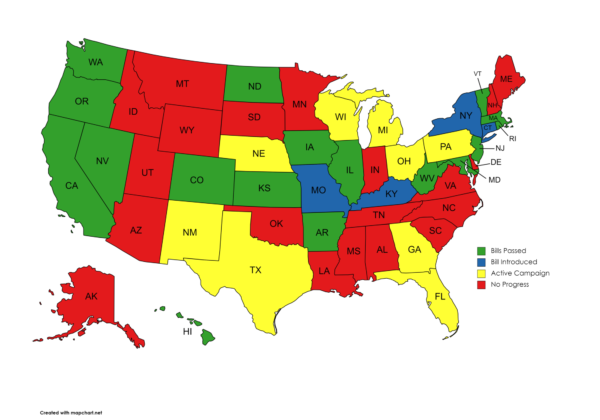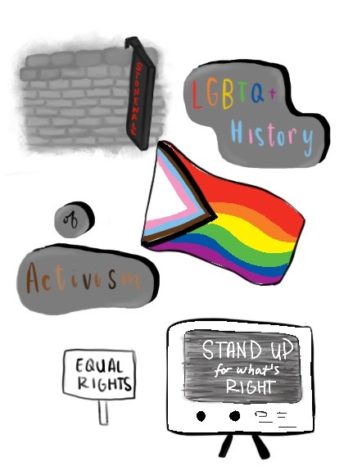When Trolling Goes Too Far: Jack Teixeira and the Groypers
The recent leak of classified documents is exemplary of a wider problem among the online youth.

Jack Teixeira’s leaks prove a wider problem among young adults flirting with edginess.
On April 13, Airman Jack Teixeira was arrested by the FBI at his Massachusetts home for allegedly leaking classified Pentagon documents on the internet, writes The New York Times. Charged under the Espionage Act, several of the documents Teixeira distributed concerned the Russian invasion of Ukraine within 48 hours of its commencement, Business Insider says. As the Washington Examiner explains, the 21-year-old cyber transport systems journeyman is suspected of abusing his access to the “vast, global communications network” of the U.S. Air Force. Many of the documents concerned clandestine intelligence operations and diplomatic situations with American allies. Some documents have allegedly been altered, and evidence had been destroyed before the arrest.
It’s worth clarifying that the leaked documents weren’t a noble pursuit. Teixeira didn’t give the media access to anything that indicated military wrongdoing; these aren’t the Pentagon Papers, and he isn’t Julian Assange or Edward Snowden. Rather than blowing a whistle, Teixeira was tooting his own horn. The leaked documents were first disseminated on the popular messaging app Discord, writes The New York Times. The documents were first shared, Yahoo! News states, to a group called Thug Shaker Central, which was based on a love of video games, guns, and racist memes. Teixeira was affectionately referred to as “O.G.” on the server, and he used his high position in the exclusive server of teenage and young men to show off his access to classified information and knowledge about current events.
Do note the fact that it was Discord, a common platform among the same age group high schoolers occupy, that was used to leak these documents. I myself use it, though certainly less extensively or actively than Teixeira. That will become important to a wider point. More pressing, though, is the personality of the leaker that made this situation possible. Teixeira, only 21, was reportedly obsessed with guns and tactical gear, writes the BBC. In fact, he kept a bazooka in his home. He had a record of being suspended for making threats, including in using a molotov cocktail; he was also well-known for making racial threats (Thug Shaker Central, the server Teixeira used to leak documents, is an allusion to a racist joke). Teixeira also made many “troubling” statements about committing a mass shooting and other violent acts.
It is evident that this man (if one can even lend that much dignity to someone as childish) was both deeply disturbed and entirely unaccountable. Relegating his vile behavior to the internet, his frenzy bloomed. Searching for validation from a group of kids, he made a series of unfortunate decisions that had implications for national security. Clearly, Teixeira did not face any responsibility for his violent, racist tendencies before they attracted the attention of the military, though. His case is illustrative of a larger trend among young people: that we live in a culture in which “edgy” behavior doesn’t face necessary scrutiny because it exists in an authority vacuum.
Teixeira and the leaks, although dangerous for the country, don’t do justice to the full scope of the issue. Young people with extremist views and little oversight can be best shown with the so-called Groyper army. Defined by the Anti-Defamation League as a group of often white supremacist, anti-Semitic, predominantly young “America First” hyper-conservatives. Chronically online, members of this movement are a vital element within current internet culture; the name comes from the “Groyper” meme, which is a variation of Pepe the Frog. Crisis Magazine adds that the Groypers often target “Conservatism, Inc.” as a way of protecting “real America First” from the traditional establishment. Their policies include isolationism, opposition to demographic change that echoes Great Replacement Theory, limiting or ending immigration, taking away LGBTQ rights, and stopping globalism in its tracks. If you’ve heard a young person make a vague (and likely anti-Semitic) remark about George Soros or the Rothschilds, you’ve probably met a Groyper — much of the basis for their dog-whistles is predicated on a distrust of an undefined but wicked elite that they see as dominated by Jewish people rather than the “superior white race.”
These young people have already become a problem, both for the United States and for the Republican Party. Conservative Charlie Kirk’s Culture Wars tour was interrupted multiple times by Groypers questioning mainstream Reaganesque policy, writes NBC News. The same happened for Rep. Dan Crenshaw (R-TX), whose more neoliberal foreign ideas attracted the attention of anti-Israeli Groypers, and Donald Trump, Jr. Led by ultranationalist influencer Nick Fuentes, the group has taken to promoting its ideas in conservative circles in which it can’t be as easily dismissed. It’s essentially reformist, hoping to transform the existing Republican Party into one that accepts the painfully revolutionary vision of these young people. It comes as the party itself is facing an identity crisis over its allegiance to Trump or to older, far less populist politics.
It’s easy to dismiss these Groypers as nothing more than a glitch in democracy, a growing pain for modernity. However, it’s part of a wider issue affecting young Americans: reactionary politicking. Their ideology is opposed to the world order itself, not to issues within its boundaries. This is an attempted coup, a deposition of centuries of liberal progress. Just as January 6 attempted to sacrifice governmental procedure to install Trump, the Groypers are willing to sacrifice the tradition that built the Western world in order to purportedly save it. They are filling the ranks of ultranationalist, white supremacist, America First, and neo-Nazi organizations. Armed with an endless spew of conspiracy about America being “sold out” and a youthful ignorance, their abhorrence of progress has not been banished or quarantined. Rather, it has been tempered in an attempt to shift the political spectrum closer to their beliefs; it’s not quite violent, not quite totalitarian, but it’s certainly as reactionary, scapegoating, and anti-globalist. It’s only become ingrained, in a more attractive form, in populist rhetoric and policy.
The rise of the Groypers is motivated, ultimately, by a youth political identity crisis. That can also explain Teixeira’s leaking. Young people are coming of age in a world in which competing forces and external crises rule the world; visions of progress and tradition are competing while events like the Great Recession and the COVID-19 pandemic, as well as long-term social and economic trends, cause seeming decay to American culture. Governing institutions, implicated in either ignoring real problems or intentionally causing them out of malice, are now the targets of these young people. They see themselves as a sold-out generation and refuse to believe in a democratic process that lends itself to incoherence. That’s partially why multiculturalism is a problem to the Groypers: it hurts demographic and cultural simplicity necessary to secure a cohesive society.
The worst part is that this ideology is nearly impossible to contradict because it doesn’t exist in the same spheres that have informational power. Parents, governments, law enforcement agencies, fact-checkers, and journalists only have limited access, if any, to learn about or inform the members of these digital groups. Even if this lack of truth wasn’t a problem, America Firsters too often praise the work these young people have done to “save the country” from the left. Crisis Magazine, cited earlier in this article, was laudatory of the Groypers. The headline of the article is “Kids in Defense of the Culture,” and throughout dismisses accusations of anti-Semitism, racism, and says that the conservatives who combat the Groypers “are pathological bad faith actors, or they have drunk from the cool waters of groupthink just as deeply as their liberal counterparts.” Perhaps most ironic, it calls the aforementioned ignorant buffoons “passionate about ethical and moral questions, well-read on the issues, and intellectually curious.” It’s apparent that external support has allowed the Groypers and those like them to thrive.
It can be comfortable to say that Teixeira and the Groypers are not a true problem, or that they’re a minor side effect of democratic processes. That isn’t the truth, though. Rather, produced out of a combination of identity nihilism and populist utilitarianism, they have infected our political discourse and become damaging examples of online trolling gone too far. Stopping them must be made a priority before they win the information wars. That outcome is unlikely, but the consequences of such a victory could permanently change the United States for the worse.

















